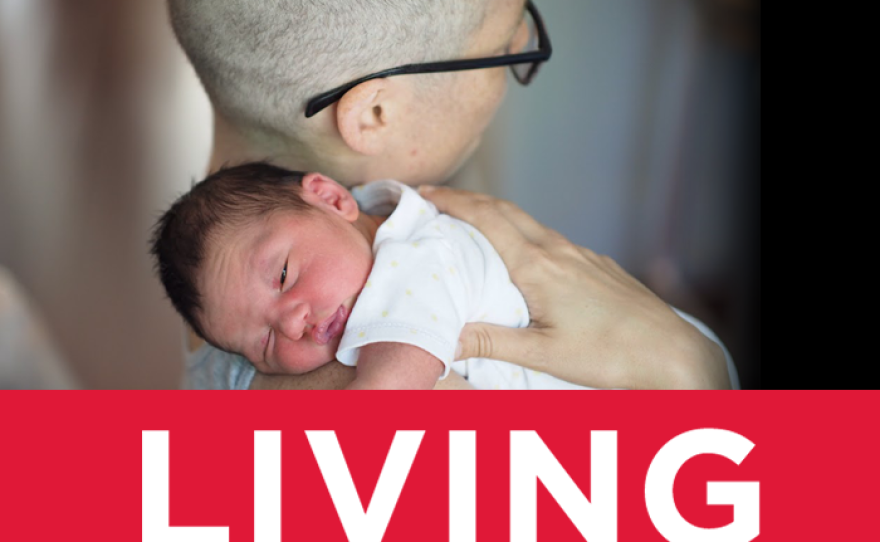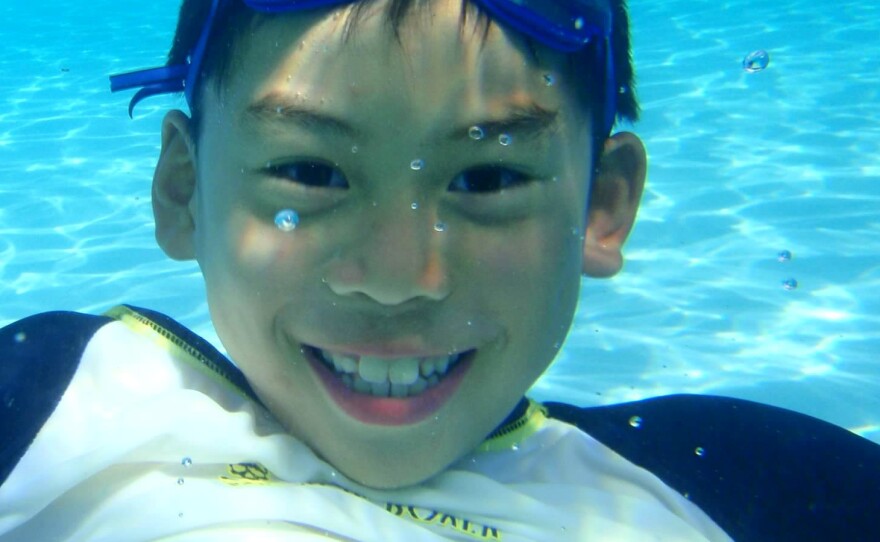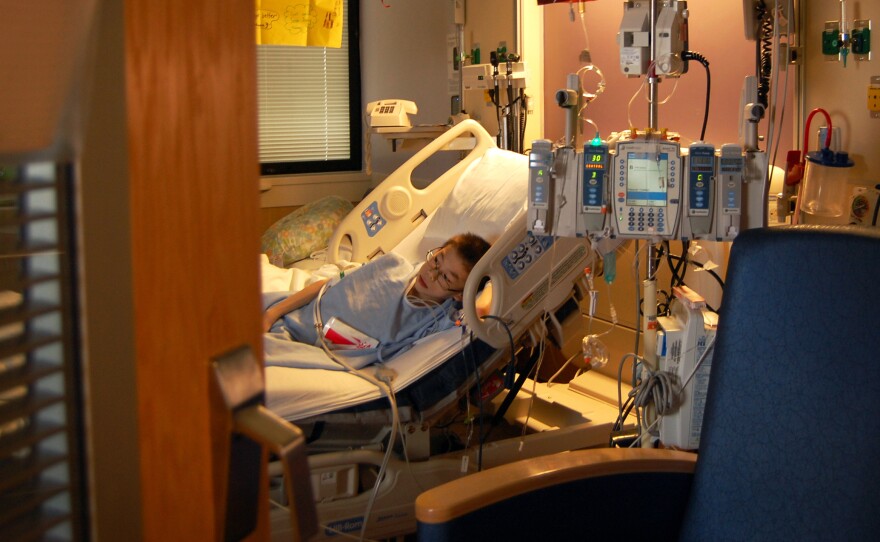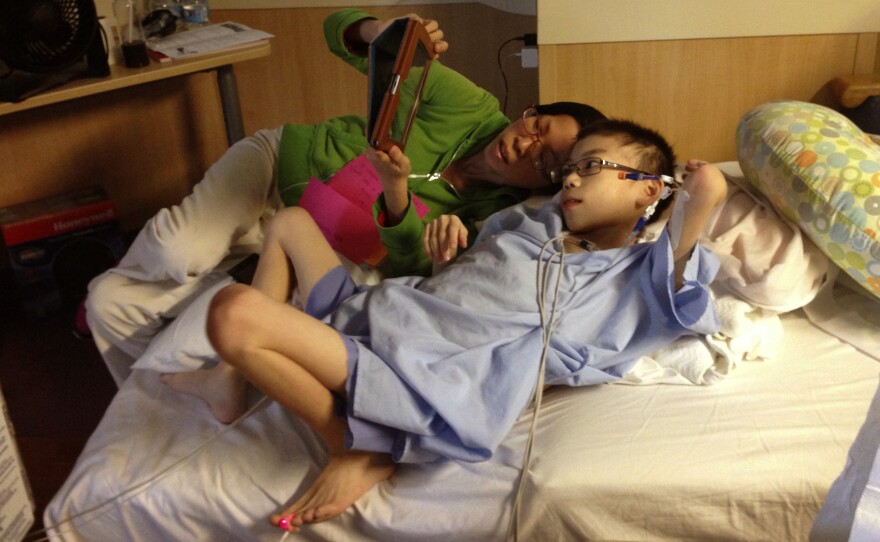


Treating cancer is a race against time.
Every once in a while, there's an experimental drug that's so promising it makes the race even more urgent. Patients and their families plead with pharmaceutical companies to get it before the Food and Drug Administration's approval.
The demand has been particularly high for a new class of drugs that harness the immune system to fight cancer.
Kathy Liu first heard about immunotherapy for cancer two years ago at a conference focused on the rare renal cancer her 10-year-old son, Joey, was fighting. Liu had her son's tumors analyzed, and he seemed like a promising candidate for immunotherapy.
"That's why I'm so desperate, contacting the drug companies," she explained. "I told them I understand the policy, I understand the regulation and I understand all the risks, but my child just has no time to wait."
Clinical trials were underway for several of the new immunotherapy drugs, but there were no trials available for children.
Pharmaceutical companies rarely offer clinical trials of new cancer drugs for children. Several pediatric cancer specialists said that's because of a lack of financial incentives for the drug companies, as well as the complexity of organizing trials for so few people, given the rarity of childhood cancer.
Only 1 in 285 children will be diagnosed with cancer before the age of 20, yet cancer is the second-leading cause of death for people in that age group.
By last fall, Joey's cancer had metastasized. After surgery, chemo, radiation, and numerous drugs that turned out to be effective for only a month or two, the family had exhausted all available treatments.
The family's doctors advised Liu to "go home" with Joey to enjoy the rest of their time together.
"We can't just go home," she said. "For us, that means giving up. If that happened to me maybe I would make the decision we just go home, but it's my child. I can't just like do nothing and go home. I have to try everything."
Last spring with the help of a friend, Liu petitioned several pharmaceutical companies to gain access to one of a handful of immunotherapy drugs in development. The petition quickly received over 17,000 signatures, but was ineffective. And even if she could have gotten one of the drugs, their doctor, Dr. Joanne Lagmay, an oncologist at Shands Children's Hospital in Gainesville, Fla., was reluctant to give it to a child.
"It's one of those really challenging things for me as a physician," Lagmay said. "I took an oath not to harm. And I worry about that in the back of my head, because it's a new drug. And we don't even know what dose to start him with."
In September, the FDA approved Keytruda, the first drug in the class of medicines called PD-1 inhibitors. Once approved, doctors are free to prescribe a drug to any patients they see fit, regardless of whether or not the FDA specifically approved the medicine for people like them.
Liu called doctors across the country to find one who would try Keytruda for Joey. Ultimately Dr. Jim Geller, an oncologist at Cincinnati Children's Hospital agreed. Geller had seen Joey before as a patient, and thought there was a chance the drug could help.
Liu, her husband, Luke, and their 3-year-old son, David, packed up and left their Florida home temporarily behind. By October, Joey was admitted to Cincinnati Children's and ready to receive his first dose of Keytruda.
When asked then what he knew about Keytruda, he said, "That I'm the first kid probably getting it, maybe? My mom said that to me." Was that an exciting prospect? "Yeah and also, if you're the first one, it's sort of like a test."
And while he admitted being a little nervous, he knew that the drug was supposed to give him a chance to get well.
In the months beforehand, Joey had become distressingly thin. His weight had fallen to 44 pounds. Once he was receiving around the clock care in Cincinnati, Joey ate better. Doctors and nurses were also able to give him a mix of pain medication to relieve the symptoms of his cancer, which were becoming increasingly painful.
However, Joey's cancer proved too advanced and by November, his health started to deteriorate. The family talked with Joey's doctors about whether he should continue taking Keytruda after the second dose, or if they should return home to Gainesville to be close to their friends and community. Kathy Liu was devastated by the prospect of spending Thanksgiving and Christmas in a hospital, but was determined to continue treatment, if it could help.
Geller said that she was welcome to stay, and that the hospital would give the family whatever they needed. But he feared the child might die in Cincinnati, far from his friends.
"I have discussed with Kathy and with families facing similar situations that it's not wrong to stop treating cancer," Dr. Geller said. "It doesn't mean you're giving up on the child. It just means you're putting your faith in a different place, and medicine has its limitations."
Geller said the Liu's found themselves in a grey area between the treatments that were available, and the ones just ahead on the horizon.
"Over the 15 or so years that I have been doing this, I don't know many parents that have pushed harder than Kathy did," Dr. Geller said. "And I mean that in a positive way."
Despite the new treatment, Joey passed away the day before Thanksgiving. Hundreds of people come to the funeral, and after the service his friends gathered outside the church to release balloons.
Even after his death, his mother remained determined to improve the outcome for children fighting rare cancers. She set up a nonprofit group, Joey's Wings, to support research. Despite all she had done, Liu had one regret: She felt she should have pushed more.
"If Joey could get this drug last year, even just a couple of months earlier, maybe it's a different story," she said.
The drug hadn't worked fast enough to save Joey's life, but it had worked just enough to make his mother wonder: What if?
Copyright 2015 WNYC-FM. To see more, visit http://www.wnyc.org/.






